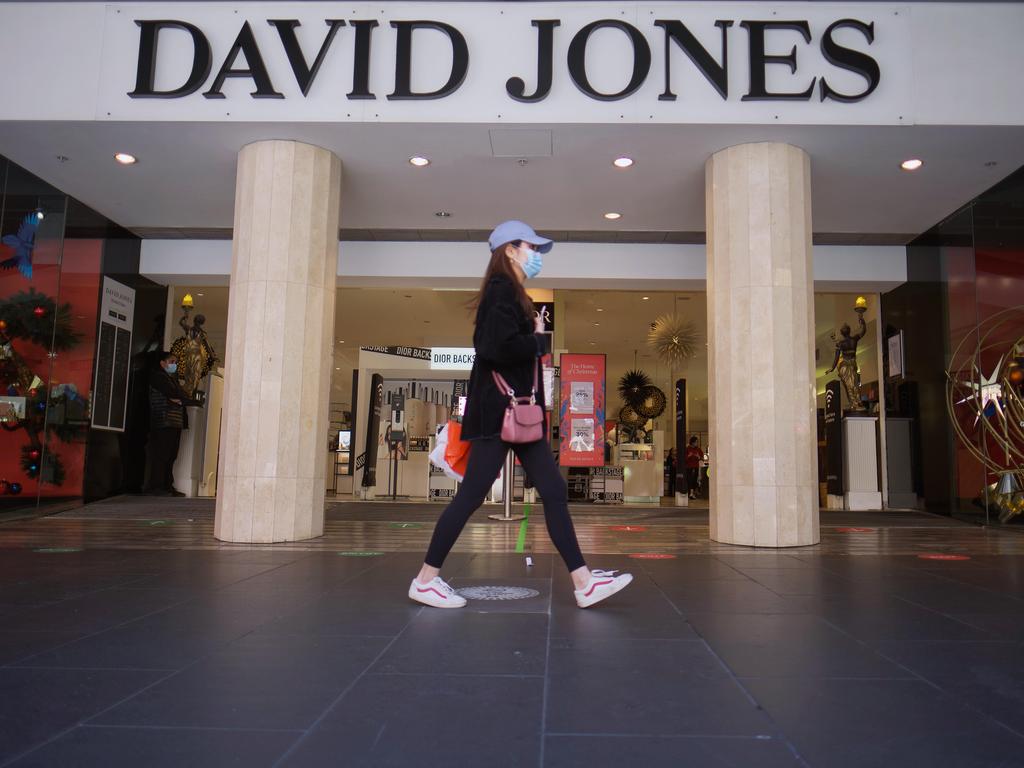Leaked Coles data reveals what grocery shoppers are cutting back on as inflation bites
The numbers don’t lie. Shoppers are now cutting back on a surprising number of grocery essentials just to make ends meet, as the full of extent of the spending crunch is revealed.
Consumers are cutting back on weekly essentials like kitchen cleaners, body wash, sponges, wipes and bathroom disinfectants just to cope with spiralling bills amid rising inflation and interest rates, according to leaked internal sales data from the nation’s second-largest supermarket chain Coles.
The soaring cost of living driven by more than 12 months of interest rate hikes, rising rents and utility bills is finally having an impact on the consumer as they stroll the supermarket aisle and decide very carefully, and frugally, what goes into their trolley or basket.
Recent data produced by Coles for its executives and suppliers, and obtained by The Australian, shows the full extent of this spending crunch that has emerged in early 2023 and how it has hit one of the most reliable and constant categories – personal health and household cleaning.
The Coles sales data reveals that in some categories such as bath soap and body wash Coles sales have plummeted by 33.3 per cent for the 12 months to May with volumes down even further, down 38.5 per cent, with sliding sales also recorded in normally dependable growth categories like scourers and sponges, multipurpose cleaning sprays and carpet cleaners.
For the 12-month period, hand sanitiser soaps and washes were down 29.8 per cent in sales, hand wash down 7.1 per cent, environmentally friendly cleaning products sales down 15.9 per cent and carpet cleaning products sales down 10.9 per cent and volumes down 17.7 per cent.
The immense pressure on household budgets squeezed by mortgage bills – that for many has almost tripled – or rents that are racing higher at double-digit growth is triggering consumers to savagely cut back their spending and make savings wherever they can.
But the internal data from Coles, which operates 835 supermarkets in Australia, shows a shopper likely under severe stress as they try to make savings on staple groceries like soap, body wash and kitchen surface sprays to make some breathing space in household budgets.
A spokesman for Coles told The Australian the cleaning category was cycling elevated sales last year due to ongoing Covid-19 and flu season, however, the sales were also impacted by cost of living pressures on shoppers and a pullback in spending in some supermarket categories.
“We know some customers are changing their purchasing behaviour in response to cost of living,” he said.
“Coles is responding to these changes through bigger value packs, promotions and through our own brand range. Last week, we launched our latest Big Pack Value range with more than 80 bulk items which can save customers up to 70 per cent, including laundry and cleaning items, bathroom staples and other household products.”
It is believed that internally, Coles thinks younger and low-income households have been changing their behaviour for some time in response to cost of living pressures, including pulling back or delaying purchase of non-essentials.
Woolworths, the nation’s biggest supermarket, is likely to have also witnessed sales falling within some categories – with the consumer nervousness not isolated to Coles shoppers.
Only last week, Commonwealth Bank chief executive Matt Comyn appeared before the House of Representatives standing committee on economics where the boss of the nation’s largest bank and home lender testified to the financial stress many Australians are facing in the current economic climate.
Mr Comyn said consumers were reining in their spending on discretionary items.
“Many households are pulling back on discretionary spending and dipping into accumulated savings. For example, among younger people who bought their first home during the pandemic the majority have now reduced their spending, and a third have reduced it by more than 30 per cent year-on-year,” Mr Comyn told the parliamentary committee.
Recently the CBA revealed that households were preparing to wind back their spending on travel, gyms, cafes, department stores and entertainment as family budgets are crunched by soaring cost of living expenses.
The latest Commonwealth Bank Household Spending Intentions index fell 1.7 per cent in June, as consumer activity continued to weaken across a range of categories, led by declines in home buying, health and fitness, entertainment and travel.
However, while many analysts and economists were bracing for a downturn in discretionary spending, which would likely impact retailers that catered to fashion and apparel, camping, wine, jewellery and homewares, it was thought basic essentials as sold across the supermarket aisle would be largely immune from any consumer downturn.
The Coles sales data paints a different picture of an average consumer in somewhat distress that is counting the dollars and cents even when picking up a bottle of body wash or kitchen surface spray – and in many cases putting it back on the shelf and trying to make what they have at home last a little longer.








To join the conversation, please log in. Don't have an account? Register
Join the conversation, you are commenting as Logout